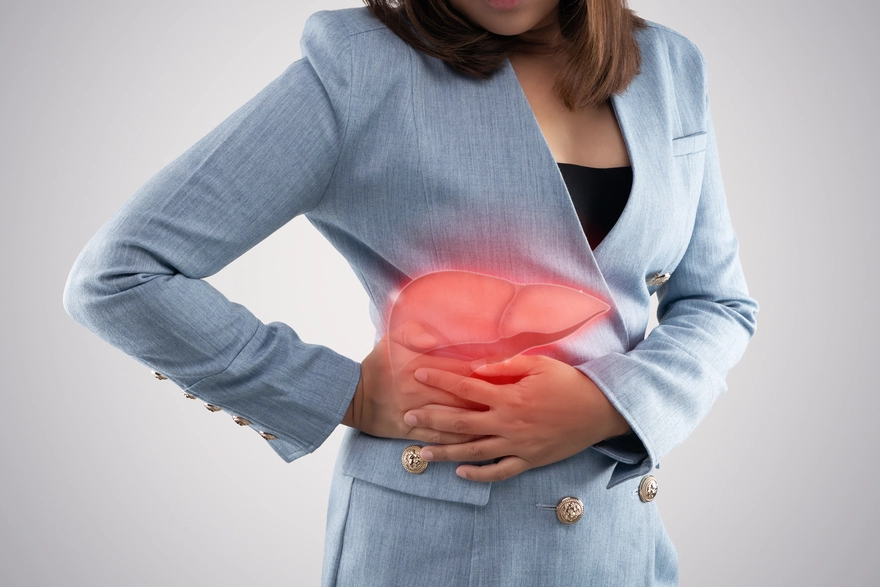Preventive Healthcare
Weight Gain Diet: Foods Charts and Plan for Both Men and Women
3564 Views
0

If you're struggling to put on weight, you're not alone. Many people find it challenging to gain weight in a healthy way. The key is to focus on a nutrient-dense weight gain diet that provides the extra calories your body needs. In this article, we'll explore the best weight gain diet plan for men and women, including a sample diet chart for weight gain. You'll also learn about the most effective high-calorie foods for weight gain and get practical weight gain tips to help you reach your goals safely.
Best Diet Plan for Weight Gain—Men and Women
A healthy weight gain diet plan should include a balance of proteins, carbohydrates, and fats. Aim to consume about 500 extra calories per day above your normal intake. However, these extra calories should come from nutrient-rich sources, not empty calories from junk food.
Some general guidelines for a weight gain diet:
- Eat 5-6 small meals per day instead of 2-3 large ones.
- Choose calorie-dense foods like nuts, dried fruit, whole milk, and avocados.
- Incorporate protein-rich foods at every meal, such as eggs, meat, fish, and legumes.
- Don't skip meals, especially breakfast.
It's also important to consult with a registered dietitian who can create a personalised weight gain diet plan based on your individual needs and health goals.
Diet Plan for Weight Gain for Men
For men, the focus of a weight gain diet plan is often on building lean muscle mass in addition to overall weight gain. To support muscle growth, men should prioritise protein intake. Good sources of protein include:
- Lean meats like chicken, turkey, and beef
- Fish, especially fatty fish like salmon
- Eggs
- Dairy products like milk, yoghurt, and cottage cheese
- Plant-based proteins like beans, lentils, and tofu
In addition to protein, men should incorporate healthy fats and complex carbohydrates into their weight gain diet. Calorie-dense snacks like trail mix, protein bars, and smoothies can help increase overall calorie intake between meals.
Diet Plan for Weight Gain for Women
A weight gain diet plan for women is similar to the one for men, with a few key differences. Women generally require fewer calories than men, so portion sizes may need to be adjusted accordingly.
Women should focus on eating a variety of nutrient-rich foods, including:
- Whole grains like oats, quinoa, and brown rice
- Starchy vegetables like potatoes, peas, and corn
- Full-fat dairy products
- Healthy fats from sources like olive oil, avocados, and nuts
Some women may find that eating smaller, more frequent meals helps with appetite and digestion. It's crucial for women to consult with a healthcare provider before starting a weight gain diet, especially if there are underlying health concerns like hormonal imbalances or digestive issues.
Weight Gain Diet Plan Chart (Day Wise)
Here's a sample 7-day diet chart for weight gain that incorporates a variety of nutrient-dense foods:
Day 1:
- Breakfast: Oatmeal with whole milk, sliced almonds, and dried fruit
- Lunch: Grilled chicken breast, brown rice, mixed vegetables
- Dinner: Salmon, sweet potato, sautéed spinach
- Snacks: Hard-boiled eggs, banana with peanut butter
Day 2:
- Breakfast: Scrambled eggs with cheese, whole grain toast, sliced avocado
- Lunch: Turkey and avocado wrap, side salad
- Dinner: Beef stir-fry with mixed vegetables and quinoa
- Snacks: Greek yoghurt with granola, apple slices with almond butter
Day 3:
- Breakfast: Smoothie made with whole milk, banana, peanut butter, and protein powder
- Lunch: Tuna salad sandwich on whole grain bread, side of fruit
- Dinner: Baked chicken thighs, roasted potatoes, steamed broccoli
- Snacks: Trail mix, cheese, and whole grain crackers
Day 4:
- Breakfast: Cottage cheese with sliced fruit and nuts
- Lunch: Veggie burger on a whole grain bun, sweet potato fries
- Dinner: Pork tenderloin, brown rice, green beans
- Snacks: Protein bar, dried fruit and nut mix
Day 5:
- Breakfast: Whole grain bagel with cream cheese and smoked salmon
- Lunch: Quinoa and black bean salad with avocado
- Dinner: Shrimp stir-fry with mixed vegetables and brown rice
- Snacks: Hummus with whole grain pita chips, mango lassi
Day 6:
- Breakfast: Peanut butter and banana toast on whole grain bread
- Lunch: Grilled cheese sandwich, tomato soup
- Dinner: Turkey meatballs, whole grain pasta, marinara sauce
- Snacks: Yoghurt parfait with granola and berries, beef jerky
Day 7:
- Breakfast: Breakfast burrito with eggs, cheese, and salsa
- Lunch: Lentil soup, side salad, whole grain roll
- Dinner: Baked tofu, quinoa pilaf, roasted Brussels sprouts
- Snacks: Whole grain muffin, fruit smoothie
Remember, this is just a sample plan. You can customise your own weight gain diet chart based on your food preferences and calorie needs.
10 Best Foods for Weight Gain
When trying to gain weight, it's important to choose nutrient-rich, calorie-dense foods. Here are some of the best foods to include in your weight gain diet:
- Nuts and nut butters: Almonds, walnuts, peanuts, and their butters are high in calories and healthy fats.
- Dried fruit: Raisins, dates, apricots, and figs are naturally sweet and calorie-dense.
- Whole grains: Oats, quinoa, brown rice, and whole grain breads provide complex carbohydrates and fibre.
- Dairy products: Whole milk, full-fat yoghurt, and cheese are good sources of protein and calories.
- Avocados: Rich in healthy monounsaturated fats, avocados are a great addition to a weight gain diet.
- Red meat: Beef, pork, and lamb are high in protein and calories, as well as iron and zinc.
- Fatty fish: Salmon, mackerel, and sardines are rich in omega-3 fatty acids and protein.
- Starchy vegetables: Potatoes, peas, corn, and winter squash are higher in calories than other vegetables.
- Eggs: A versatile protein source, eggs can be prepared in many ways and easily added to meals.
- Protein shakes: Homemade protein shakes made with whole milk, protein powder, and fruit can be a convenient way to increase calorie and nutrient intake.
What Should You Eat and What Should You Avoid?
When following a weight gain diet plan, focus on nutrient-dense, whole foods. Avoid processed junk foods that are high in sugar and unhealthy fats. These foods may lead to weight gain, but they won't provide the nutrients your body needs for healthy growth and development.
Foods to eat:
- Whole grains
- Fruits and vegetables
- Lean proteins
- Healthy fats
- Full-fat dairy products
Foods to avoid:
- Sugary snacks and beverages
- Fried foods
- Processed meats
- White bread and pasta
- Low-fat or diet products
Conclusion
Gaining weight healthily requires a balanced approach that focuses on nutrient-dense, calorie-rich foods. By following a personalised weight gain diet plan and incorporating regular strength training, you can reach your weight gain goals while supporting your overall health. Remember to consult with a healthcare professional or registered dietitian to ensure your weight gain diet meets your individual needs.
At Metropolis Healthcare, we understand the importance of proper nutrition for achieving and maintaining a healthy weight. Our team of experts can provide you with personalised guidance and support to help you reach your health goals. Consider booking a health check-up or wellness screening to assess your current health status and identify areas for improvement. With the right knowledge and care, you can take control of your health and feel your best.
FAQs
Which food is good for weight gain?
Calorie-dense, nutrient-rich foods like nuts, dried fruit, whole grains, full-fat dairy products, and lean proteins are good choices for a weight gain diet.
How can a female gain weight?
Females can gain weight by consistently consuming more calories than they burn each day. A weight gain diet plan for women should include a variety of nutrient-dense foods and may involve eating smaller, more frequent meals.
How can I gain weight in one month?
To gain weight in one month, aim to consistently eat 500-1000 extra calories per day above your normal intake. Focus on nutrient-rich, calorie-dense foods and incorporate strength training exercises to build muscle mass.
How much protein should I consume for weight gain?
The general recommendation for protein intake is 0.8 grams per kilogram of body weight. However, those trying to gain weight may benefit from slightly higher amounts, around 1.2-1.6 grams per kilogram of body weight.
Which fruit is good for weight gain?
Fruits that are higher in calories and natural sugars, such as bananas, mangoes, avocados, and dried fruits like raisins and dates, can be good additions to a weight gain diet.
What is a healthy rate of weight gain per week?
A healthy rate of weight gain is about 0.5-1 pound per week. Gaining weight too quickly can lead to an increase in body fat rather than lean muscle mass.
Can I gain weight without eating junk food?
Yes, it's possible to gain weight healthily without relying on junk food. Focus on nutrient-dense, calorie-rich foods like nuts, whole grains, lean proteins, and healthy fats.
Is it necessary to exercise for weight gain?
While diet plays a major role in weight gain, exercise, particularly strength training, can help build lean muscle mass and improve overall body composition. Aim for 2-3 strength training sessions per week.













1701259759.webp)









 WhatsApp
WhatsApp